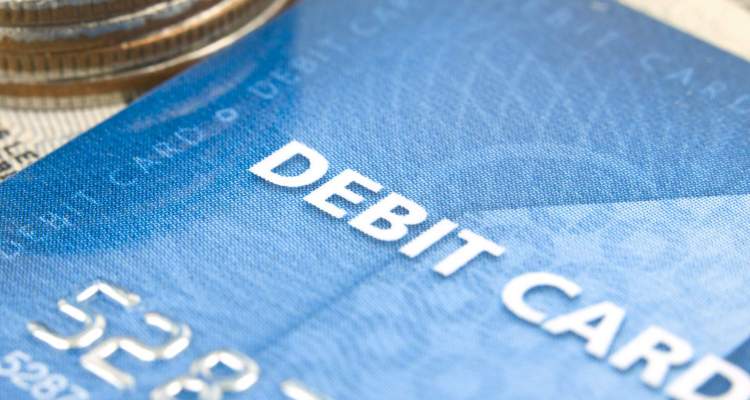
A terrific invention
I think most of us would agree that debit cards are a terrific invention. First you swipe a plastic card through a point of sale terminal (POS) and key in a personal identification number (PIN). Within seconds money is automatically transferred from your bank account to the stores bank account. You never have to worry about not having enough cash on you to make a purchase (as long as there is money in your account).
Introduced in 1994, debit cards have surpassed cash as our preferred method of payment. Today, in Canada the number of plastic card transactions, including debit and credit cards is twice the number of paper-based transactions (cash and cheques).
Who wants to carry cash? Certainly not me, and both of my kids have had debits cards since they were 12 years old, with a small daily limit for cash withdrawals. You can discuss this with your bank and have the daily cash withdrawal limit reduced on debit cards if you wish – a wallet full of bills can make you or your kids a target for thieves.
While I believe that most of us think using debit cards is safer, that may not always be the case and if you don’t know the rules – you may want to think again.
The dark side
There are some things about debit cards that you may not know.
If someone steals your debit card to take money from your account you could be responsible to repay all of that money if your financial institution decides the theft was your fault. Many people don’t realize they have financial liability on these cards that is limited only by the amount of money in the accounts accessible by the debit cards.
As well many think debit cards are treated the same as credit cards in a fraud situation – but that is not the case.
Theft and your liability
When your credit card is stolen you are not liable for the losses if you report the theft of the card right away. And even if you don’t report the theft promptly you can be held responsible for $50 at the most.
With a stolen debit card, however, you can lose so much more. In fact, your losses can be more than the actual amount of funds in your account. How?
If you have a line of credit or overdraft protection on your account or if the card is linked to other accounts you could lose that money as well and have to repay the financial institution.
Your PIN is considered to be your electronic signature. You are most likely to be held liable for debit card losses if you have not taken care to safeguard your PIN.
Here are some ways to safeguard and protect those all-important confidential numbers:
- When using a debit card at a store or an automated bank machine shield your PIN as you enter it. Beware of “shoulder surfers” people who lurk behind you to get a look at your number as you enter it.
- Don’t write your PIN on your card or keep a written record of it in your wallet, purse or briefcase. This is an open invitation to thieves to steal your money.
- Don’t use a PIN that is easy to identify such as your birthday, address, telephone number or social insurance number. Scramble the numbers in some way.
- Don’t walk away from an automated banking machine (ABM) or retail checkout without taking your debit card and the transaction record.
- Don’t give your PIN to ANYONE – even someone at your own financial institution
- Don’t give your PIN over the phone for purchases.
However, there is one exception to this rule – if your life is in danger – remember it is only money – your safety is worth much more.
You are covered for crime-related losses if you divulge your PIN. However, the burden of proof is on you, not the financial institution.
Code for consumer debit card services
I recommend that you read the Canadian Code of Practice for Consumer Debit Card Services. You can find it posted on the Interac Association website
The code was revised recently to expand on the question of – Who is liable for debit card losses? A cardholder is not liable for losses if he or she has been the victim of fraud, theft, or has been coerced by trickery, force, or intimidation.
The code defines your responsibility when you use your debit card, to take money from an ABM, or to pay for goods or services, as well when are you at fault and if there is a problem what to do?
So read the code practice carefully and safeguard your PIN. Report any problems to the card issuer – Your financial health may depend on it.






